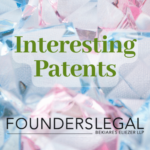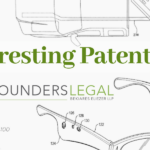Can artificial Intelligence (AI) Invent?
Artificial Intelligence (AI) technology scales globally, driving innovation and adding trillions of dollars to the world economy.
In recent years, developers and innovators have delivered powerful advancements in highly efficient and effective AI technologies. These technologies are now capable of transforming businesses and organizations, automating and optimizing tasks and processes across all sectors, organizing and analyzing vast amounts of data, and formulating and developing groundbreaking discoveries.
Can AI be considered an inventor under US Patent Law?
Simply put, no. AI cannot be considered an inventor under current US patent law. Language within US patent law designates an inventor as an “individual.” And while third parties have attempted to sue the United States Patent and Trademark Office regarding its position on AI inventorship, the organization is still exploring and analyzing AI’s role in innovation.
In October 2020, the USPTO approached the topic of AI and IP law in open discussions with IP specialists and stakeholders, resulting in a report titled “Public Views on Artificial Intelligence and Intellectual Property Policy.” From the received public comments, the USPTO found that overall, one major obstacle in defining AI’s role in inventorship was that AI has no universally recognized definition, making it difficult to establish policies on the topic.
Additionally, while most of the stakeholders surveyed on the topic felt that AI inventorship was a theoretical possibility in the distant future, respondents expressed that current AI technologies are still largely “narrow AI” and therefore dependant on human intervention. This particular stance plays an important consideration in the role of AI in IP law.
What are international positions on AI and Inventorship?
Many global organizations have begun addressing and approaching the concept of AI inventorship according to modern IP law.
WIPO
The World Intellectual Property Organization (WIPO) has invested a large amount of discussion and analysis into the state of Artificial Intelligence in IP law. Currently, WIPO offers the stance that “the fundamental goal of the IP system is to encourage innovation through new technologies and creative works. This includes human created as well as AI created inventions and works.” According to WIPO, a distinction needs to be made in current IP policy regarding human-created inventions and machine-created inventions. However, in respect to current IP law, the organization does not currently recognize AI as an inventor.
EPO
Another key player in the IP global community, the European Patent Office (EPO) has taken a guarded approach towards the topic, stating that “the EPC requires that an inventor designated in the application be a human being and not a machine.”
CHINA
In a July 2020 WIPO discussion regarding IP and AI, He Jun, a Senior Judge of the Intellectual Property Court of the Supreme People’s Court of the People’s Republic of China stated, “there is no legal or practical barrier to the determination of an AI application as the inventor. The right to remuneration enjoyed by the AI-inventor, who is similar to a service inventor, can likewise be assigned to the developer of the AI application. This does not prevent granting inventorship to the AI application. In addition, law can be revised through a legal procedure to create new legal subjects such as legal persons and grant them rights. Therefore, even if the inventor is interpreted in a narrow sense, it is still possible to grant inventorship to an AI application.”
However, in China’s Draft Amended Patent Examination Guidelines from November of 2020, an amendment was made to exclude AI as an inventor.
SOUTH KOREA
According to Founders Legal retained Korean IP firm, Kim, Hong & Associates, “since the Korean Patent Act and the relevant precedent recognize only a natural person as an inventor, a company or corporation or device, etc. which is not a natural person must not be described as an inventor. That is, since AI which is a kind of program is not a natural person, it cannot be an inventor.”
WORLD’S FIRST PATENT AWARDED TO AI
Despite the stances of major organizations against AI inventorship, progression in the state of AI and loopholes in the system continue to challenge modern IP law globally. A team of researchers and international attorneys supporting the AI paradigm DABUS has been making waves in its pursuit of recognizing artificial inventors.
In July of 2021, the team announced its success in obtaining the world’s first patent for an AI-generated invention through the South African patent office. The invention, a “food container and devices and methods for attracting enhanced attention,” cites DABUS as the sole inventor.
While the lack of examination formalities within the South Africa patent system may have provided a loophole for this AI/IP milestone, the implications have quickly appeared. On July 28, 2021, just a few days following DABUS’ recognition, Australian Federal Court Justice Jonathan Beach overturned a 2021 decision that patents inventors could only be human. Beach noted, “I need to grapple with the underlying idea, recognizing the evolving nature of patentable inventions and their creators. We are both created and create. Why cannot our own creations also create?”
Lauren Hawksworth
Marketing Administrator
lhawksworth@founderslegal.com


